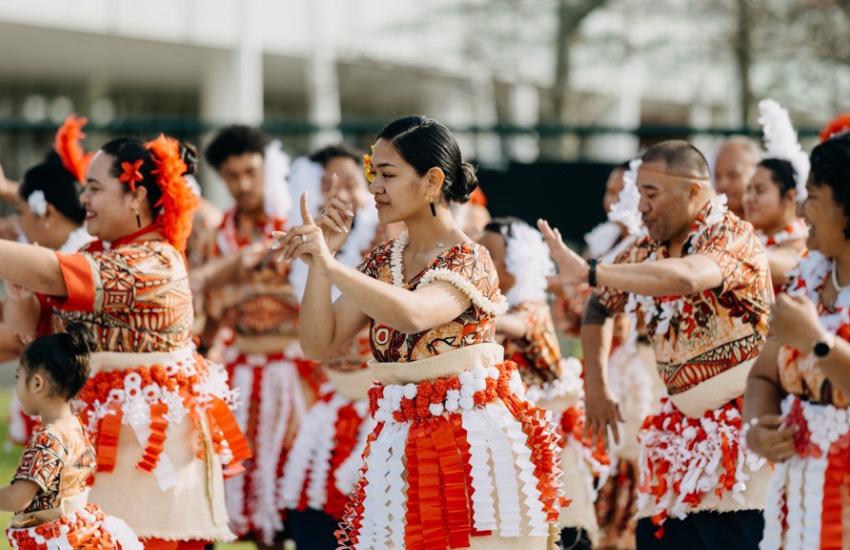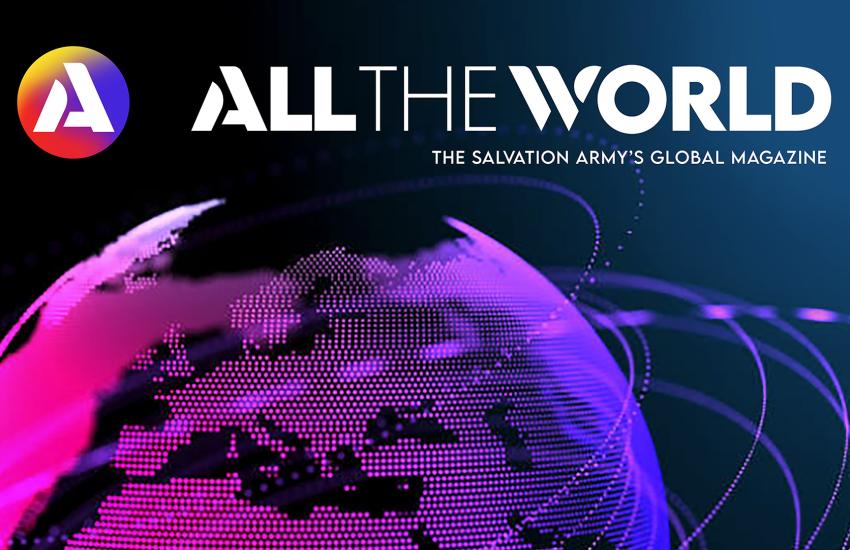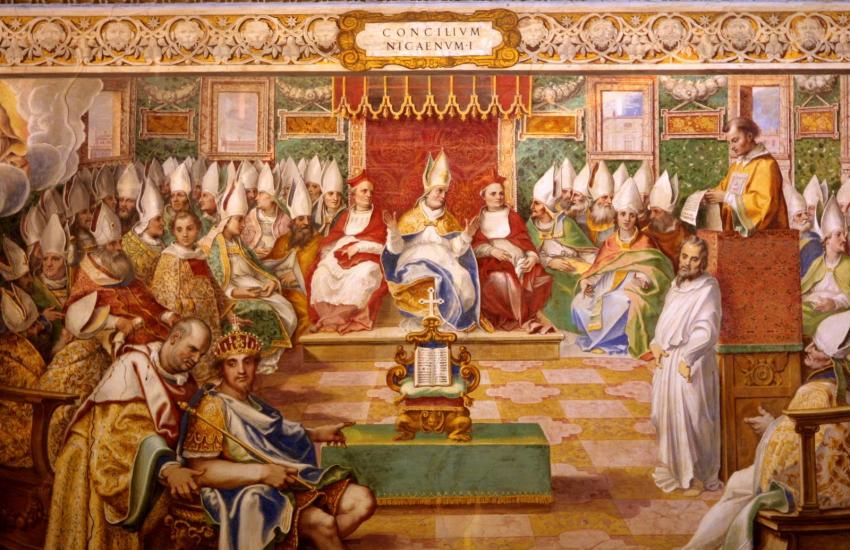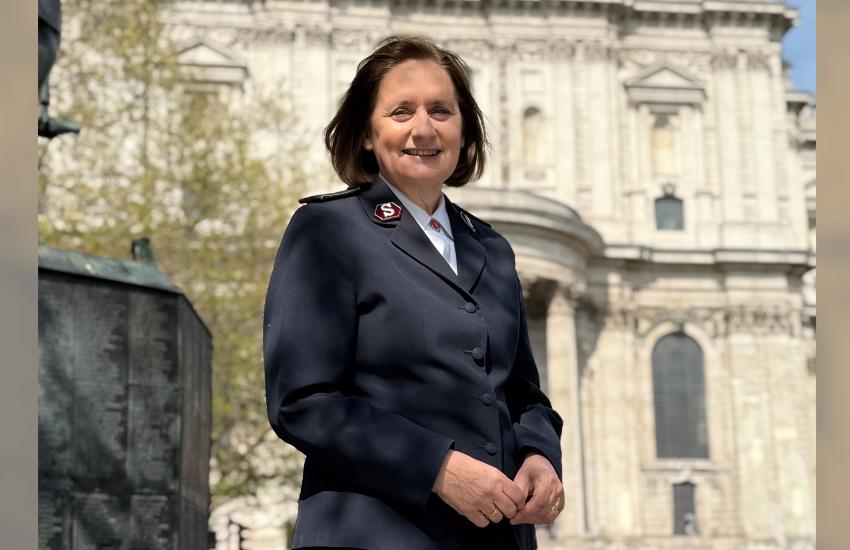Statement of Position
Sexism is discrimination based on sex or gender, most often against women and girls and is increasingly understood as a fundamental human rights issue.1
Sexism often includes a combination of prejudice plus power. It is expressed through systemic, structured prejudice and cultural discrimination and can be present in a family, communities of faith, and societal and national cultures.2 The Salvation Army believes that both male and female are made in the image of God and are equal in value3 and therefore is opposed to sexism. We reject any view that subordinates women to men, or men to women.
The Salvation Army believes that our world is enhanced by equitably valuing, equipping and mobilising all human beings. While valuing gender equity, The Salvation Army acknowledges with regret that Salvationists have sometimes conformed to societal and organisational norms that perpetuate sexism.
We are committed to model the equitable valuing, equipping and mobilising of men and women, and will speak into societies around the world where sexism exists.
Background and Context
Women often experience systemic social injustice because of their gender. Sexism can result in extreme human cruelty and even death.4
- In some cultures infant girls do not receive the same medical care and attention that boys receive.5
- Women have been doused in kerosene and set ablaze or burned with acid for ‘disobedience.’ So-called ‘honour killings’ take the lives of thousands of young women every year.6
- Globally, women aged 15 through 44 are more likely to be maimed or die from male violence than from cancer, malaria, traffic accidents and war combined.7
- The majority of people trapped in modern slavery every year are female, many being exploited for sexual purposes.8
Sexist attitudes may result in a pay gap or sexual harassment. Globally women earn less compared to similar male workers, according to median hourly earnings. The feminisation of poverty is a direct consequence of women’s unequal access to education and economic opportunities.9 The United Nations estimates that women perform 66 per cent of the world’s work and produce 50 per cent of the food, yet earn only 10 per cent of the income and own 1 per cent of the property.10
Sexist behaviour can include a man talking condescendingly to a woman with the automatic assumption that he knows more about the subject than she does; or a deliberate pattern of manipulation that makes a woman doubt her own perceptions or sanity.11 This behaviour is frequently associated with male emotional abuse of a female.
Sexism can begin at a young age. Studies of classrooms ranging from kindergarten through graduate school reveal that teachers are more likely to call on male students, even when female students raise their hands; wait longer for male than for female students to respond to questions; and give male students more eye contact.12
The desire of women to develop themselves and use their gifts is fundamentally human. Denying or stifling education or job opportunities is oppressive.
Grounds for the Position of The Salvation Army
The first chapters of the Bible teach that man and woman are created to enjoy community together. The fundamental equality of the sexes is affirmed. God makes man and woman equal in dignity and status, giving authority and dominion over creation to both.13
In the creation of woman, God provides a ‘suitable helper’ for man.14 Throughout the Old Testament a ‘helper’ is one who ‘rescues’ others in situations of need. ‘Helper’ is a word frequently applied to God, who is competent and strong, not subordinate.15
Domination of woman by man is due to the Fall. This is the penalty for sin, and not the original intention for mutual harmony.16
References to ‘God the Father’ can be misinterpreted.17 The scriptural description does not mean that God is male, but rather that God acts towards us as a loving father would. The Bible also describes God as loving us with the care associated with mothers.18
Alongside Old Testament patriarchs, Miriam, Huldah and Deborah demonstrate the same kind of religious authority as men.19
In the New Testament, we see numerous examples where Jesus recognises the inherent dignity of women that Eve experienced before the Fall:
- Jesus affirmed Mary for assuming the posture of a disciple – Luke 10:38-42
- Jesus discoursed courteously with the Samaritan woman at the well – John 4:1-26
- Jesus honoured the woman anointing his feet with perfume – Luke 7:36-50
- Jesus commissioned Mary first with the news of the resurrection – John 20:11-18
On the day of Pentecost, the outpouring of the Spirit includes both men and women, as prophesied by Joel.20 Christian community is intended as a community of oneness, where male and female are ‘all one in Christ’.21
God intends redemption to restore equality between men and women, beginning with the community of faith, the Church.22
Practical Responses
The Salvation Army is committed to the equality of men and women. In 1895, William Booth directed his senior leaders in Orders and Regulations for Salvation Army Staff Officers: ‘Women must be treated as equal with men in all the intellectual and social relationships in life.’23
While acknowledging this directive has not always been achieved, The Salvation Army retains this commitment in the current Orders and Regulations for Officers:
Principle of equality. An important principle in the government of the Army is the right of men and women to share equally in the proclamation of the gospel of Jesus Christ to the world. Both men and women Salvationists, married or single, can hold any rank, responsibility or position of authority in the Army from that of local officer to that of General.24
Additionally, The Salvation Army embodies a worldwide tradition of service to others without discrimination and will advocate on behalf of women and girls.
Responding at an organisational level:
- The Salvation Army seeks to challenge and overcome sexism wherever it exists, promoting egalitarian values in all expressions of Salvation Army life.
Responding at an individual level:
- Salvationists are expected to take personal action against sexism, motivated by their obedience to the example of Jesus and their respect for the image of God in male and female.
Responding at a societal level:
- The Salvation Army seeks to influence governments, businesses, civil society and other faith communities to promote the equitable treatment of men and women including efforts to achieve equitable working conditions, pay, educational opportunities and public safety for women and girls.
- The Salvation Army seeks to encourage all people – especially leaders in society – to recognise the negative effects of sexism and commit to rectify this injustice.
References
- Universal Declaration of Human Rights (1948). http://www.un.org/en/universal-declaration-human-rights/. See also, Human Rights and The Salvation Army (2018). https://issuu.com/salvationarmyihq/docs/human_rights_and_the_salvation_army.
- Parrillo, V. (Ed.). (2008). Encyclopedia of Social Problems. SAGE Publications.
- Genesis 1:27
- Kristof, N. & WuDunn, S. (2010). Half the Sky: Turning Oppression into Opportunity for Women Worldwide. Vintage. p. xiv.
- Johansson, S. and Nygren, O. (1991). ‘The Missing Girls of China: A New Demographic Account’, Population and Development Review, 17 (1), 35-51.
- UNFPA (United Nations Population Fund). (2000). Lives Together, Worlds Apart: Men and Women in a Time of Change, chapter 3. https:// www.unfpa.org/publications/state-world-population-2000
- Vlachova, M. and Biason, L. (Eds.). (2005). Women in an insecure World: Violence Against Women, Facts, Figures and Analysis. Geneva Centre for Democratic Control of Armed Forces. p. vii.
- International Labour Organization, 2016 Global Estimates of Modern Slavery. https://www.ilo.org/wcmsp5/groups/public/@ed_norm/@ declaration/documents/publication/wcms_575605.pdf
- Hendra, J. (2014). Feminization of Poverty in Rural Areas. http://www. unwomen.org/en/news/stories/2014/3/john-hendra-speech-on-feminization-of-poverty
- UNICEF. (2011). http://www.unicef.org. tr/basinmerkezidetay.aspx?id=2180&dil=en&d=1. See also, Sustainable Development Goal 5: Achieve gender equality and empower all women and girls. https://sustainabledevelopment.un.org/sdg5. The economic empowerment of women is a prerequisite for sustainable development.
- Referred to as ‘mansplaining’ and ‘gaslighting’.
- Baker, D. (2018). ‘Teaching for Gender Difference.’ National Association for Research in Science Teaching (NARST). https://www.narst.org/publications/research/gender.cfm.
- Genesis 1:26 and Genesis 1:28.
- Genesis 2:18 – the Hebrew phrase is ‘Ezer Kenegdo’.
- Christians For Biblical Equality. (1989). Men, Women and Biblical Equality. https://www.cbeinternational.org/sites/default/files/english_0.pdf.
- Genesis 3:16.
- The Salvation Army Handbook of Doctrine (2010), pp 52-53.
- e.g., Isaiah 42:14, Isaiah 46:3, Isaiah 49:15, Isaiah 66:13, Matthew 23:37, Hosea 13:8.
- Micah 6:4, Kings 22:14 and Judges 4:1ff.
- Acts 2:17-18 and Joel 2:28-29.
- Galatians 3:28.
- Bilezikian, G. (2006). Beyond Sex Roles: What the Bible Says about a Woman’s Place in Church and Family. (3rd ed.). Baker Academic. pp 92 ff.
- Booth, W. quoted in Munn, J. (2015). Theory and Practice of Gender Equality in The Salvation Army. Gracednotes Ministries, USA. pp 31-32. See also, Booth, C. (1870). Female Ministry: or, Woman’s Right to Preach the Gospel, Morgan and Chase, London.
- Orders and Regulations for Officers, Volume 2, Part 1, Chapter 4, Point 7.





